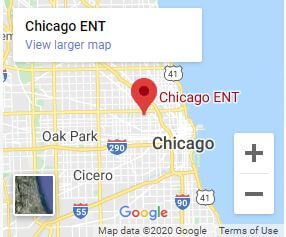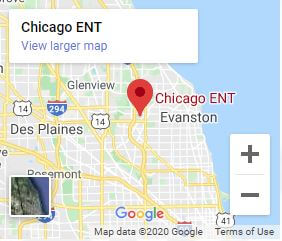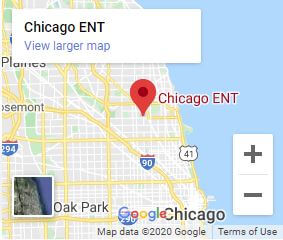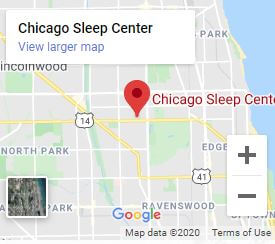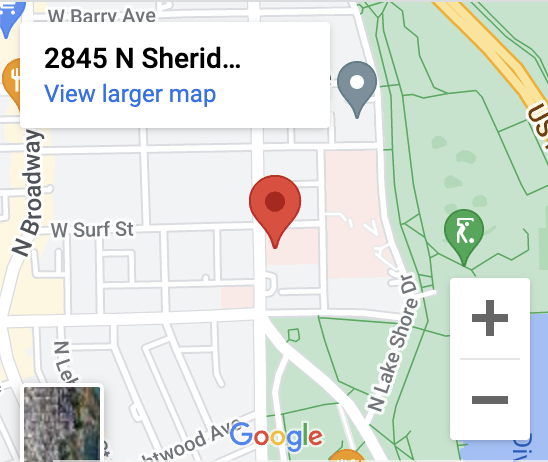Do you keep feeling as though the world is moving under your feet? Do you often have anxious thoughts?
You may have vertigo and anxiety. Vertigo can be frightening and disorienting and may have several causes. While most causes are physical, stress can also trigger or exacerbate vertigo.
Keep reading to learn more about vertigo and anxiety and the relationship between the two.
What is Vertigo?
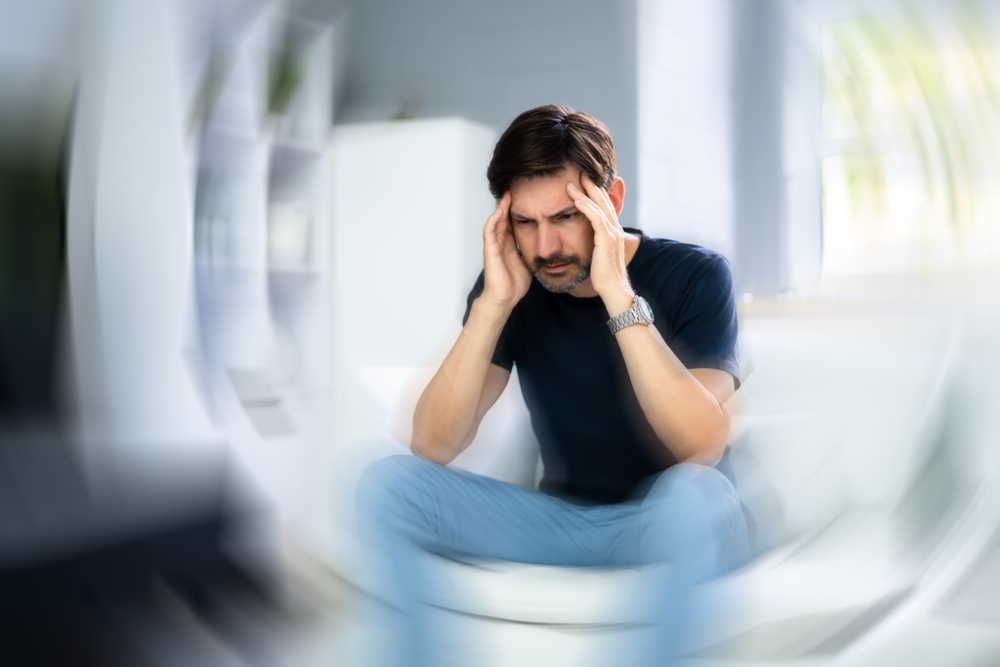
Vertigo is a type of dizziness that makes you feel like you or the world around you is spinning despite everything being perfectly still. It can last anywhere from a few seconds to a few hours.
If you have severe vertigo, it may persist for weeks or even months. Many people with vertigo often feel anxious, knowing that they may have an episode at any moment.
What Causes Vertigo?
An inner ear problem usually causes vertigo. Common causes include:
Benign Paroxysmal Positional Vertigo (BPPV)
Benign paroxysmal positional vertigo or BPPV occurs when small calcium crystals called canaliths detach from their usual position and collect in the inner ear. These crystals disrupt neural messages transmitted to the brain, which may confuse the brain and cause benign paroxysmal positional vertigo symptoms.
Symptoms can include lightheadedness, unsteadiness, and feeling like you or a room is spinning.
Labyrinthitis
The inner ear is crucial for hearing and balance. Labyrinthitis is the inflammation of the labyrinth, the balance and hearing organ in the inner ear. It causes prolonged vertigo and hearing loss.
Vestibular Neuritis
Vestibular neuritis is a condition that causes sudden and severe vertigo. It occurs when the inner ear’s vestibular nerve, which relays information about balance to the brain, becomes inflamed.
Due to inflammation, the information isn’t communicated correctly, causing a sensation of motion or spinning.
Meniere’s Disease
Meniere’s disease is an inner ear disorder caused by an accumulation of fluid that causes pressure changes in the ear. Abrupt pressure changes can lead to vertigo.
Other causes of vertigo include:
- Diabetes
- Stroke
- Ear surgery
- Low blood pressure
- Neck or head injury
- Migraine headaches
- Certain medications, such as some cardiovascular drugs, antibiotics, and anti-inflammatories
Symptoms of Vertigo
The main symptom of vertigo is feeling like you or everything is spinning. People describe it as swaying, unbalanced, or tilting.
Other symptoms that can accompany vertigo include:
- Nausea
- Sweating
- Headache
- Vomiting
- Tinnitus or ringing in the ears
- Nystagmus (abnormal eye movements)
- Hearing loss
What is Anxiety?

Anxiety is a feeling of dread, uneasiness, and fear of perceived or real threats. It can make you feel tense and restless, sweat, and have a fast heartbeat.
Everyone has felt anxious at some point, and it’s a normal part of life. But when anxiety is severe, you may have intense, persistent, and excessive fear and worry about everyday situations.
The Connection Between Vertigo and Anxiety
Anxiety can trigger or aggravate vertigo in various ways, including:
Adrenaline Rush
During an anxiety attack, your body can release a surge of adrenaline as it prepares to respond to a perceived threat. The adrenaline rush can increase your heart rate, make you breathe faster, and increase your blood pressure. These physiological responses can worsen vertigo and feelings of unease.
Muscle Tension
When you’re anxious, your muscles can tense up, particularly those in your shoulders and neck. The muscle tension can make it harder for blood to reach your inner ear and brain. That could make you feel dizzy and unbalanced and set off or worsen vertigo.
Hyperventilation
Hyperventilation is deep, rapid breathing that can be caused by anxiety. When breathing, you inhale carbon dioxide and exhale oxygen.
Typically, hyperventilation leads to low carbon dioxide levels in the blood, which narrows the blood vessels supplying blood to the brain and other parts of the body. Reducing your blood supply deprives your brain of oxygen, causing symptoms like lightheadedness that can further aggravate vertigo.
The Vicious Cycle of Vertigo and Anxiety
Everything about a vertigo episode, from its unpredictability to its symptoms, can induce anxiety. Imagine you’re out running errands when suddenly you feel as though you or everything around you is spinning.
You may feel like you’re about to fall, or you fall. You might start sweating and feeling nauseous. That experience can be scary.
Knowing that it could happen again, combined with the unpredictability of vertigo attacks, can bring about a lot of anxiety. Conversely, if you’re dealing with anxiety, you’ll find that it may trigger or make your vertigo worse. Knowing the connection between the two is essential in breaking the cycle.
How Can You Prevent Vertigo and Deal with Anxiety?
Some strategies can help you reduce or prevent vertigo episodes and manage anxiety. Typically, a combination of treatments is more effective than just one form of therapy. These can include:
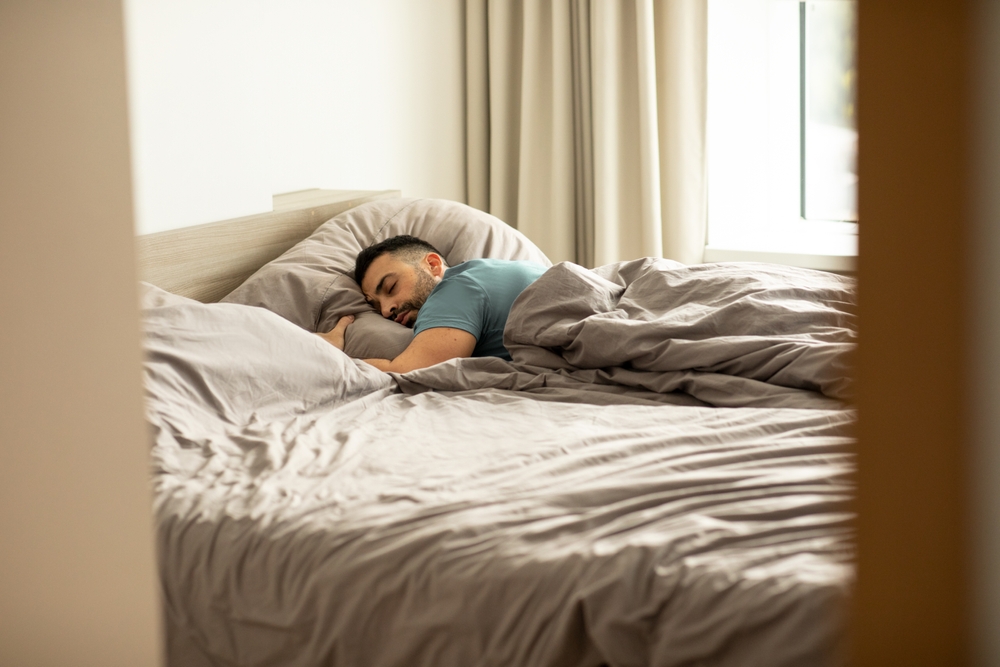
- Meditation
- Light exercise
- Staying hydrated
- Visiting an ENT specialist
- Maintaining a healthy diet
- Listening to calming music
- Cognitive behavioral therapy
- Getting frequent and adequate sleep
- Lying or sitting down during a vertigo episode
- Minimizing tobacco use, alcohol, and caffeine
- Slowing down movements, particularly of the head, during vertigo episodes
Don’t Let Vertigo and Anxiety Rule Your Life
At Chicago ENT, our experienced team of ENT specialists will collaborate to determine the cause of your symptoms and develop an effective treatment plan to help you find relief and improve your quality of life.
Are you experiencing recurring episodes of vertigo? Schedule your appointment today at one of Chicago ENT’s five centrally located locations! You don’t have to live with the debilitating symptoms of vertigo any longer!











